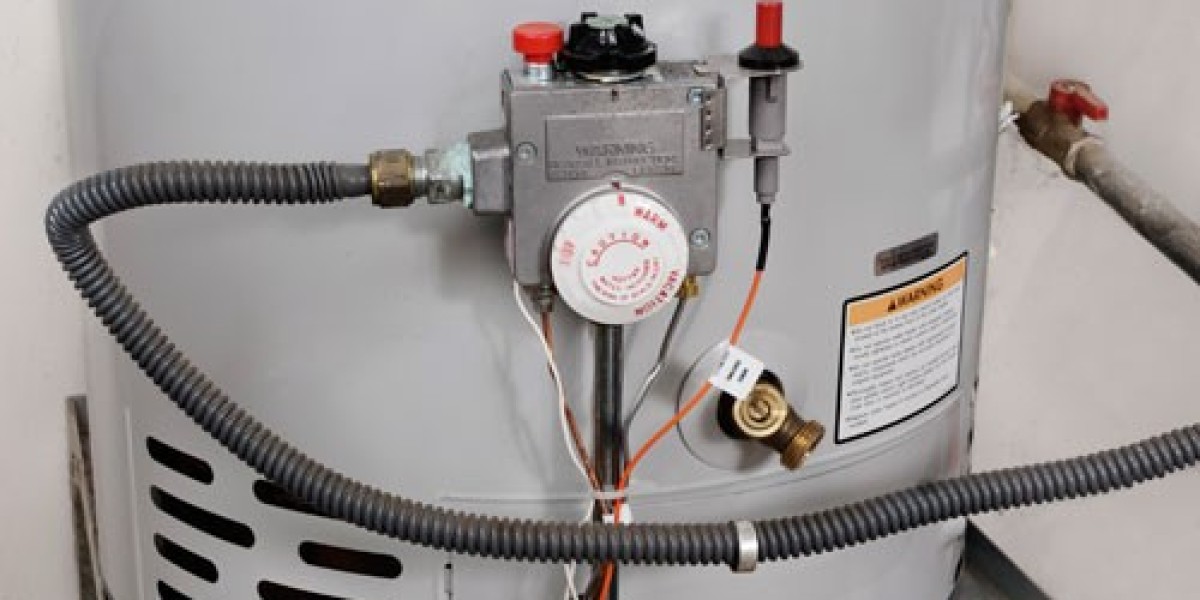Water heaters are essential in modern homes, providing hot water for daily activities such as bathing, cleaning, and cooking. Central to their operation is the water heater coil, which is responsible for transferring heat to the water.
Over time, this coil can experience wear and tear, impacting the heater's efficiency. Proper maintenance and timely troubleshooting can extend the life of your water heater and keep it running smoothly. This guide will walk you through the essentials of maintaining and troubleshooting your water heater coil.
Understanding the Role of the Water Heater Coil
The water heater coil is typically found in electric and indirect water heaters. In electric models, the coil heats the water directly, while in indirect systems, the coil transfers heat from an external source (like a boiler) to the water in the tank.
The condition of this coil is critical to the overall efficiency of the water heater. A damaged or poorly functioning coil can lead to inadequate heating, increased energy bills, and in some cases, complete system failure.
Common Issues with Water Heater Coils
Several problems can affect the water heater coil over time. Understanding these issues can help in early detection and troubleshooting:
Limescale Buildup: If you live in an area with hard water, mineral deposits (mainly calcium and magnesium) can build up on the coil, insulating it and reducing its ability to transfer heat efficiently. This results in longer heating times and higher energy consumption.
Corrosion: Water heater coils are often exposed to water for extended periods, making them susceptible to corrosion. Corrosion can weaken the coil, causing it to fail prematurely.
Electrical Problems: For electric water heaters, wiring or connection issues can affect the performance of the heating coil. A faulty connection can lead to inconsistent heating or cause the coil to stop working altogether.
Wear and Tear: Over time, normal usage can degrade the coil, reducing its efficiency. Aging coils may take longer to heat water or struggle to reach the desired temperature.
Maintenance Tips for Water Heater Coils
Regular maintenance can help prolong the life of your water heater coil and ensure efficient operation. Here are some key steps:
Flushing the Tank
One of the simplest and most effective ways to maintain your water heater coil is by flushing the tank regularly, especially if you have hard water. This prevents the buildup of limescale, which can insulate the coil and reduce efficiency. To do this:
Turn off the water heater and let the water cool.
Attach a hose to the drain valve at the bottom of the heater.
Open the drain valve and allow the water to flow out, removing any sediment.
Close the valve, remove the hose, and refill the tank with fresh water.
Inspecting the Coil
Periodically check the coil for signs of wear, corrosion, or limescale buildup. If you notice any significant deposits, you may need to clean or replace the coil. You can use a water heater cleaning solution or a vinegar-based mixture to dissolve limescale deposits on the coil.
Testing Electrical Connections
For electric water heaters, check the electrical connections to ensure they are secure and free of corrosion. Use a multimeter to test the continuity of the coil and the thermostat to ensure they are functioning properly. If the reading shows no continuity, the coil may be damaged and require replacement.
Installing a Water Softener
If hard water is an ongoing issue, installing a water softener can reduce the amount of minerals in your water supply, helping to prevent limescale buildup on the coil. This investment can significantly extend the life of your water heater and reduce the need for frequent maintenance.
Troubleshooting Water Heater Coil Issues
If you notice issues such as insufficient hot water, longer heating times, or fluctuating water temperatures, the coil could be the culprit. Here are some troubleshooting steps:
No Hot Water
Possible Cause: A faulty coil may prevent the water from heating properly.
Solution: Use a multimeter to check the coil’s electrical continuity. If there is no continuity, the coil has failed and needs to be replaced.
Inconsistent Water Temperature
Possible Cause: Limescale buildup on the coil can insulate it, making it harder for the coil to transfer heat effectively.
Solution: Flush the tank to remove sediment and use a coil cleaner to dissolve any limescale deposits.
Slow Heating
Possible Cause: A corroded or aging coil may take longer to heat the water.
Solution: Inspect the coil for signs of wear or corrosion. If the coil is heavily damaged, replace it with a new one.
Increased Energy Bills
Possible Cause: An inefficient coil due to limescale buildup or electrical issues can cause the heater to work harder, consuming more energy.
Solution: Perform regular maintenance to keep the coil clean and functioning efficiently. If the coil is old or damaged, consider replacing it.
When to Call a Professional
While many maintenance and troubleshooting tasks can be handled by homeowners, some issues may require the expertise of a professional plumber or technician.
If you're uncomfortable working with electrical components, or if the water heater coil needs replacement, it's best to call a licensed professional. Additionally, if troubleshooting steps don’t resolve the issue, a technician can diagnose and fix more complex problems.
Final Thought
The water heater coil plays a crucial role in ensuring your water heater works efficiently. Regular maintenance, such as flushing the tank and inspecting the coil, can help prevent common issues like limescale buildup and corrosion.
By troubleshooting problems early, you can avoid costly repairs and extend the lifespan of your water heater. Whether you're dealing with slow heating or fluctuating temperatures, maintaining your water heater coil is key to keeping your system running smoothly for years to come.








